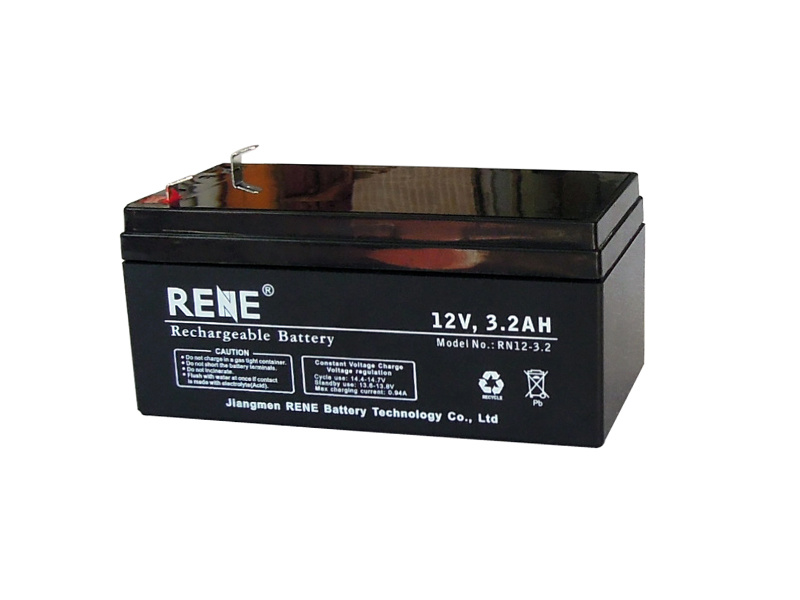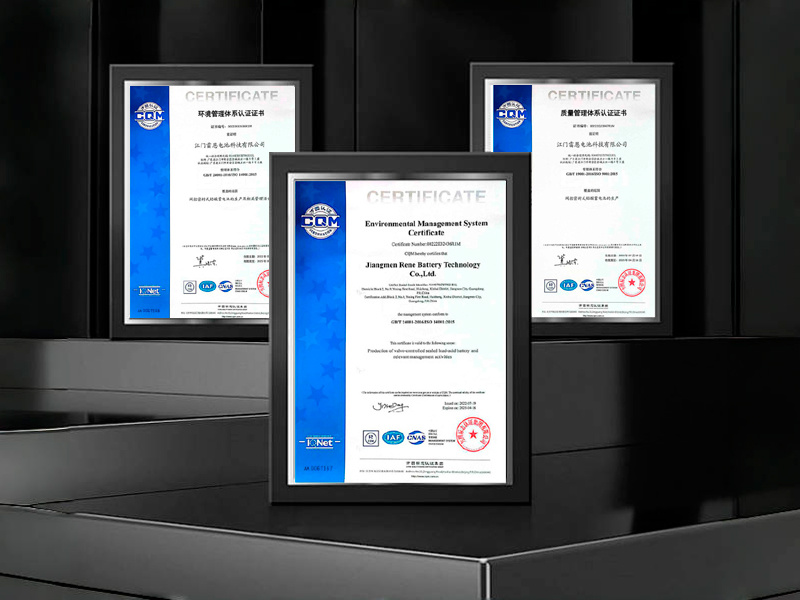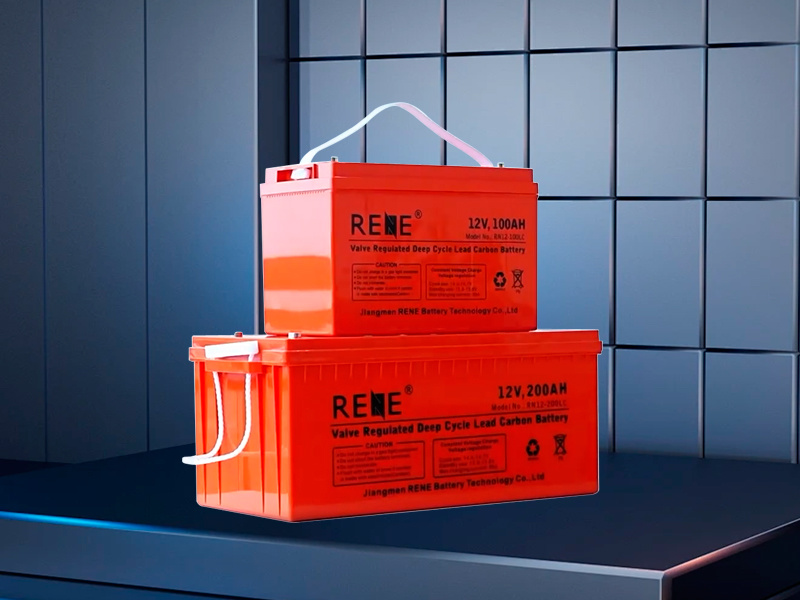Jiangmen Rene Battery Technology Co., Ltd.
The Ultimate Guide to Choosing Lithium Batteries for Your Off-Grid Solar System
2025-05-27
The Ultimate Guide to Choosing Lithium Batteries for Your Off-Grid Solar System Table of Contents 1. Introduction 2. Understanding Lithium Batteries 2.1 What Are Lithium Batteries? 2.2 Types of Lithium Batteries 3. Advantages of Lithium Batteries for Off-Grid Solar Systems 4. Choosing the Right Lithium Battery 4.1 Capacity and Power

The Ultimate Guide to Choosing Lithium Batteries for Your Off-Grid Solar System
Table of Contents
- 1. Introduction
- 2. Understanding Lithium Batteries
- 3. Advantages of Lithium Batteries for Off-Grid Solar Systems
- 4. Choosing the Right Lithium Battery
- 4.1 Capacity and Power Requirements
- 4.2 Battery Lifespan and Cycle Life
- 4.3 Depth of Discharge (DoD)
- 4.4 Charging Speed
- 5. Installation Tips for Lithium Batteries
- 6. Maintenance and Monitoring of Lithium Batteries
- 7. FAQs
- 8. Conclusion
1. Introduction
In the quest for energy independence and sustainability, off-grid solar systems have gained significant popularity. Central to these systems is the **lithium battery**, known for its efficiency, longevity, and reliability. Navigating the myriad of options available can be challenging. In this guide, we will provide detailed insights and practical tips to help you select the ideal lithium battery for your off-grid solar setup.
2. Understanding Lithium Batteries
2.1 What Are Lithium Batteries?
Lithium batteries are rechargeable energy storage devices that utilize lithium ions to store and release electrical energy. These batteries have become the leading choice for various applications, particularly in solar energy systems, due to their superior energy density and lower maintenance requirements compared to traditional lead-acid batteries.
2.2 Types of Lithium Batteries
There are several types of lithium batteries, each with unique characteristics:
- **Lithium Iron Phosphate (LiFePO4)**: Known for their thermal stability and safety, these batteries are ideal for applications requiring high discharge rates and longevity.
- **Lithium Nickel Manganese Cobalt (NMC)**: Often used in electric vehicles and energy storage systems, NMC batteries balance performance, lifespan, and cost.
- **Lithium Polymer (LiPo)**: Commonly used in portable devices, LiPo batteries offer lightweight designs but may not be suitable for large energy storage needs.
3. Advantages of Lithium Batteries for Off-Grid Solar Systems
Choosing lithium batteries for your off-grid solar system comes with several significant advantages:
- **Higher Energy Density**: Lithium batteries can store more energy in a smaller and lighter package, making them ideal for limited space.
- **Longevity**: With a lifespan of up to 10 years or more, lithium batteries outlast traditional batteries, providing better long-term value.
- **Faster Charging**: Lithium batteries can be charged more quickly than other types, which means you can maximize energy use during sunny days.
4. Choosing the Right Lithium Battery
Selecting the right lithium battery involves several key considerations:
4.1 Capacity and Power Requirements
The first step is determining your energy needs. Capacity is measured in kilowatt-hours (kWh) and indicates how much energy a battery can store. Assess your daily energy consumption to calculate the required capacity. For example, if you consume 10 kWh daily, you should look for a battery system that can accommodate this demand.
4.2 Battery Lifespan and Cycle Life
Lifespan and cycle life are crucial factors in battery selection. Cycle life refers to the number of complete charge-discharge cycles a battery can undergo before its capacity significantly diminishes. Look for lithium batteries with a high cycle life, ideally over 3,000 cycles, to ensure long-term performance.
4.3 Depth of Discharge (DoD)
Depth of discharge is the percentage of the battery's capacity that has been used. Lithium batteries generally allow for a higher DoD (typically 80-90%) than lead-acid batteries, which can only be discharged up to 50%. Choosing a battery with a higher DoD enables you to utilize more of the stored energy.
4.4 Charging Speed
Consider the charging speed when selecting a lithium battery. Rapid charge capabilities can significantly improve the efficiency of your solar system, especially during periods of low sunlight. Look for batteries that support fast charging to enhance your energy management.
5. Installation Tips for Lithium Batteries
Proper installation is key to maximizing the performance and lifespan of your lithium batteries. Here are essential tips:
- **Choose the Right Location**: Install batteries in a cool, dry place to prevent overheating and improve efficiency.
- **Follow Manufacturer Guidelines**: Always adhere to the manufacturer's installation instructions to avoid warranty issues.
- **Consider a Professional Installer**: If you’re unsure about the installation process, it's wise to hire a professional who specializes in solar energy systems.
6. Maintenance and Monitoring of Lithium Batteries
While lithium batteries require less maintenance than traditional batteries, regular checks can enhance their performance:
- **Monitor State of Charge (SoC)**: Use a battery management system (BMS) to keep track of the battery's health and charge levels.
- **Check for Corrosion**: Inspect terminals and connections for corrosion and clean them as needed to ensure optimal conductivity.
- **Temperature Management**: Ensure batteries operate within the recommended temperature range to prevent damage.
7. FAQs
What is the lifespan of lithium batteries in off-grid solar systems?
Lithium batteries can last between 10 to 15 years, depending on usage and maintenance.
Are lithium batteries safe for home use?
Yes, lithium batteries are generally safe when installed and maintained according to the manufacturer's guidelines.
How do I calculate the right battery size for my solar system?
Evaluate your daily energy consumption in kWh and select a battery capacity that can accommodate this demand while allowing for some additional reserve.
What is the difference between lithium and lead-acid batteries?
Lithium batteries are lighter, have a longer lifespan, higher DoD, and faster charging capabilities compared to lead-acid batteries.
Can lithium batteries be used with any solar inverter?
Not all solar inverters are compatible with lithium batteries. Ensure that the inverter is designed to work with lithium technology to avoid performance issues.
8. Conclusion
Choosing the right lithium battery for your off-grid solar system can significantly impact your energy efficiency and independence. By considering factors such as capacity, lifespan, charging speed, and installation practices, you can select a battery that meets your needs. With a strategic approach, you will enjoy the benefits of renewable energy while maximizing your system's performance. Make informed decisions and invest in the future of sustainable living with the right lithium battery today.
Key words:














